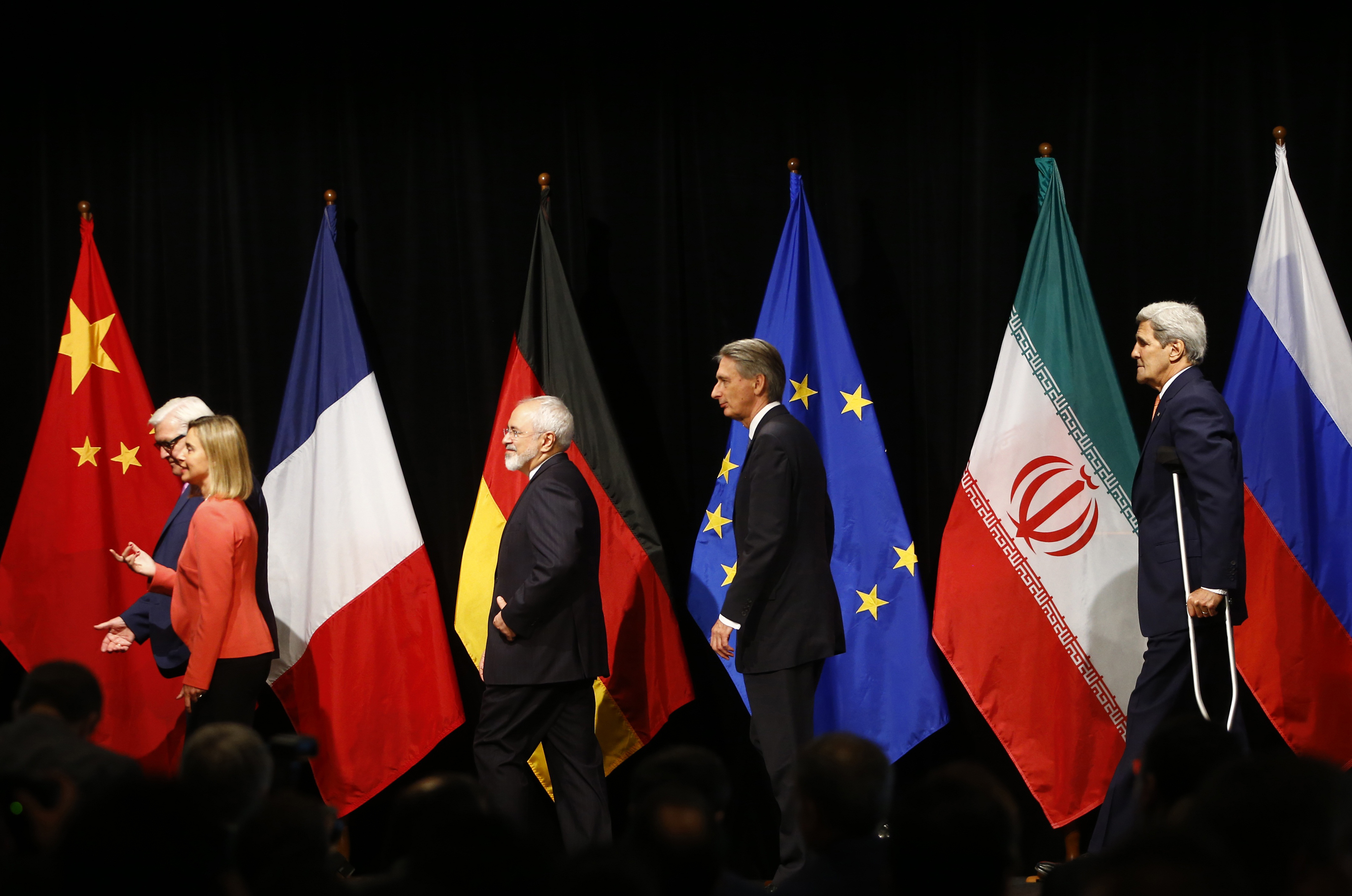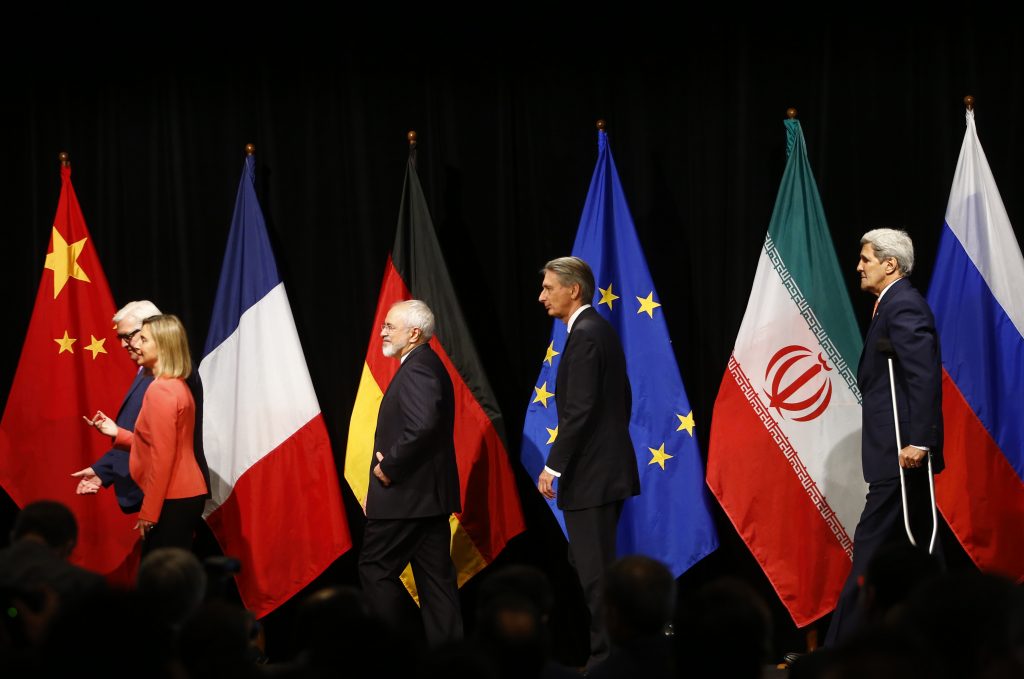 The reactions to the nuclear agreement with Iran announced July 14 were utterly predictable. Those against the agreement yesterday are those against the agreement today. Those for it are still for it. The Obama administration will fight for its approval by Congress and the Netanyahu administration will fight against it. Republican presidential hopefuls are all against it. Democratic hopefuls (at least one) is for it. And all this was before ten in the morning.
The reactions to the nuclear agreement with Iran announced July 14 were utterly predictable. Those against the agreement yesterday are those against the agreement today. Those for it are still for it. The Obama administration will fight for its approval by Congress and the Netanyahu administration will fight against it. Republican presidential hopefuls are all against it. Democratic hopefuls (at least one) is for it. And all this was before ten in the morning.
Only the really crazy people decided that they wanted to learn in some detail what was in the agreement before passing judgment. After all, it could take up to a couple days to get a feel for the details, nuance, and the series of compromises that went into the final agreement. By that time, Twitter will have moved on to something else. By that time, what you think won’t be re-tweetable by even your most enthusiastic followers!
Take a deep breath, and let it out very slowly … Here are a few things that are going to be the same for a while:
1) The Middle East is not going to suddenly become a better or worse place. It will take time to see if the agreement has any legs in the Congress and among Iranian hardliners. Both still have opportunities to sabotage it this year and for the next ten years. Israel did not become a less safe place to live today and the Gulf did not become less secure. They may think that, but there is no reason to believe it.
2) Iran has not normalized relations with the West with a stroke of the pen. It remains on the US list of nations supporting terrorism. It remains the lifeblood of Hezbollah. It remains on the wrong side in Syria. It can’t be “normal” until it figures out how to drop its worst clients, including Bashar al-Assad.
3) Nobody is going to make big money quickly. Just because sanctions are eliminated doesn’t mean Iranians will have lots of money to spend. They could go through unfrozen assets fairly quickly, and the declining price of oil is not going to help them. Youth unemployment is around twenty-five percent. Exports other than oil are negligible, (although I’ll be checking my pistachio futures). The state and the Revolutionary Guard own most of the major economic enterprises and run them badly. Trading with Iran, let alone investing there, has never been simple—it ranks close to Djibouti in ease of doing business.
So any new normal is going to take a while to evolve. In the meantime, we can expect the United States to try to make our friends in the region less apprehensive by promising massive new arms sales. This at a time when Israeli and Gulf armed forces already have far superior equipment to defend themselves, and more arms are likely to do little to assuage their concerns or solve their problems. But, they’ve got bargaining power, and will use it!
Saudi Arabia will consider itself grievously harmed by the agreement because it could possibly over time lead to a more capable Iran meddling in their business. The Saudis will likely develop their own civilian nuclear capability over the next ten years, but they were planning to do this long before the negotiations with Iran started.
Other Gulf states may take another look at nuclear power, but some will worry more about nuclear safety than nuclear bombs. There will be no nuclear arms race. The Gulf states, each at its own pace, will consider how to tinker with its relations with Iran, some looking for profit, some looking for a modus operandi like they have had in the past.
Sadly, there will be no fewer Syrian refugees tomorrow; ISIS will continue to pursue its medieval vision; Egypt, the largest Arab state by population, will continue to seek an elusive security while targeting civil society as an enemy of the state. Yemenis will endure more bombs and more Houthi excesses. The Palestinian/Israeli conflict (remember that?) will fester. The aspirations of most Middle Easterners of all stripes for “just a normal life” will remain unfulfilled.
Those of us associated with think tanks will imagine new security architectures for the Middle East that will bring Iran and its Arab neighbors into a web of mutual commitments. Already my e-mail inbox has two or three creative plans to consider. We will speculate about a more constructive Iranian role in the region and the internal forces militating against it. Some will advocate for rapid integration of Iran into a more normal state; others will argue for caution. Many will talk; few will listen. We will all want real Iranian experts on our panels.
For at least a few days there is a good, but perhaps futile, argument for a time-out. Let the negotiators have a bit of sleep. Think about the erosive consequences of over-the-top rhetoric, whether from politicians or news entertainers. Dial back the speculation into the realm of the real world, not an imagined paradise or a feared Armageddon. The agreement could be the beginning of an entirely new history in the Middle East, but history is still a long way off.
Richard LeBaron is a Nonresident Senior Fellow with the Atlantic Council.
Image: From left: German Foreign Minister Frank Walter Steinmeier, High Representative of the European Union for Foreign Affairs and Security Policy Federica Mogherini, Iranian Foreign Minister Mohammad Javad Zarif, British Foreign Secretary Philip Hammond, and US Secretary of State John F. Kerry arrive for a family picture after the last plenary session at the United Nations building in Vienna, Austria, July 14. Iran and six major world powers reached a nuclear deal July 14 capping more than a decade of on-off negotiations with an agreement that could potentially transform the Middle East, and which Israel called an "historic surrender." (Reuters/Leonhard Foeger)
